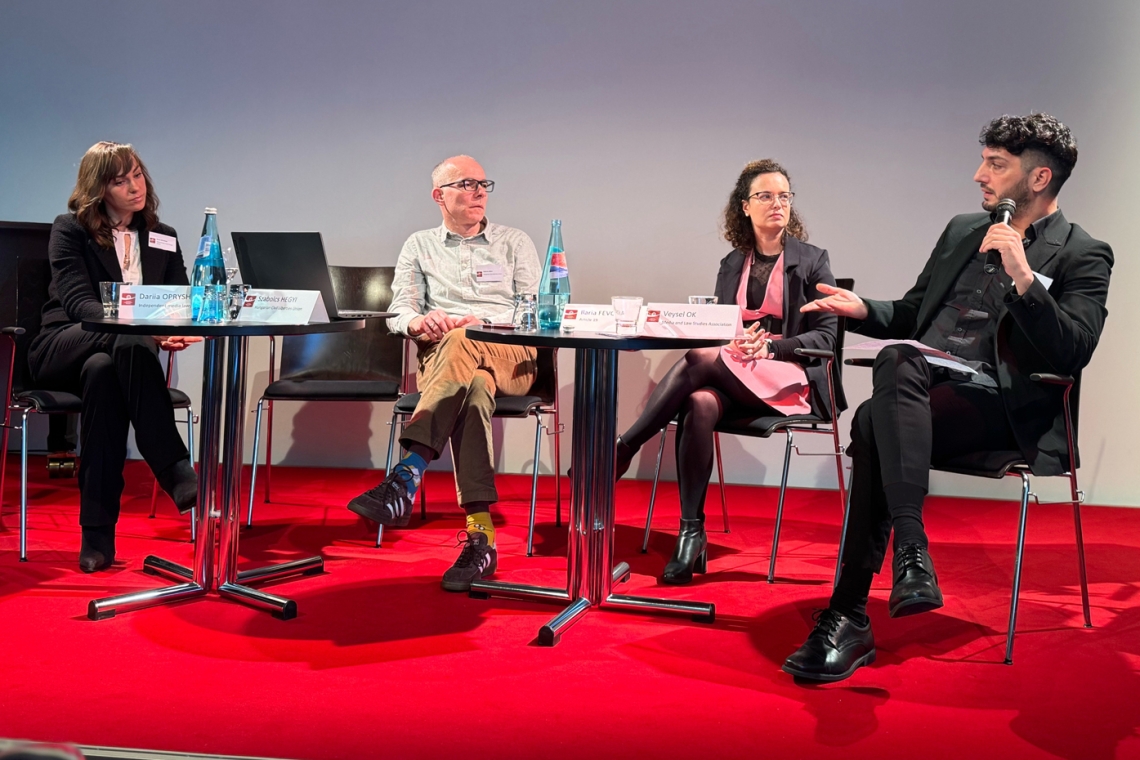MLSA Co-Director Attorney Veysel Ok and Projects and Grants Manager Batıkan Erkoç attended the "Implementation of European Court of Human Rights (ECtHR) Judgments" workshop organized by the European Implementation Network in Leipzig between 19-22 November.
During the workshop, the importance of "Rule 9.2" communications made by civil society organizations to the Council of Europe in terms of the implementation of ECtHR judgments was emphasized. Various presentations were made on how to make Rule 9.2 applications more effective and how civil society can be effective in the implementation process. Experiences were shared with best examples from different countries.
Veysel Ok the problem in the implementatin of UHM judgments in Turkey is systemic
Speaking at the "Safety and Protection of Journalists" section of the workshop, Veysel Ok referred to the "I Don't Feel Safe" report published by MLSA. He emphasized that eighty percent of journalists in Turkey do not feel safe. He also emphasized that the problem with the implementation of ECtHR judgments in Turkey is not isolated but systemic.
Veysel Ok said that the Kavala and Demirtaş judgments are a historic test for the European Convention on Human Rights. He mentioned that if the violation process does not work in this case, this could set a dangerous example for other member states. He emphasized that other Member States might be emboldened to disregard ECtHR judgments.
What is a Rule 9.2 Communication?
Non-governmental organizations can submit a 9.2 communication to the Council of Europe, the body responsible for implementing ECtHR judgments. In these communications, it is assessed whether the necessary measures have been taken about the relevant ECtHR judgment. According to the evaluation, it is decided whether the implementation process will continue or not. 9.2 notifications are seen by civil society organizations as an important tool for publicizing human rights violations in Turkey.
In recent months, the Media and Law Studies Association (MLSA) Legal Unit filed Rule 9.2 notices in Ahmet Yıldırım v. Turkey regarding internet freedom and Ulusoy and Others v. Turkey regarding bans on Kurdish concerts.



